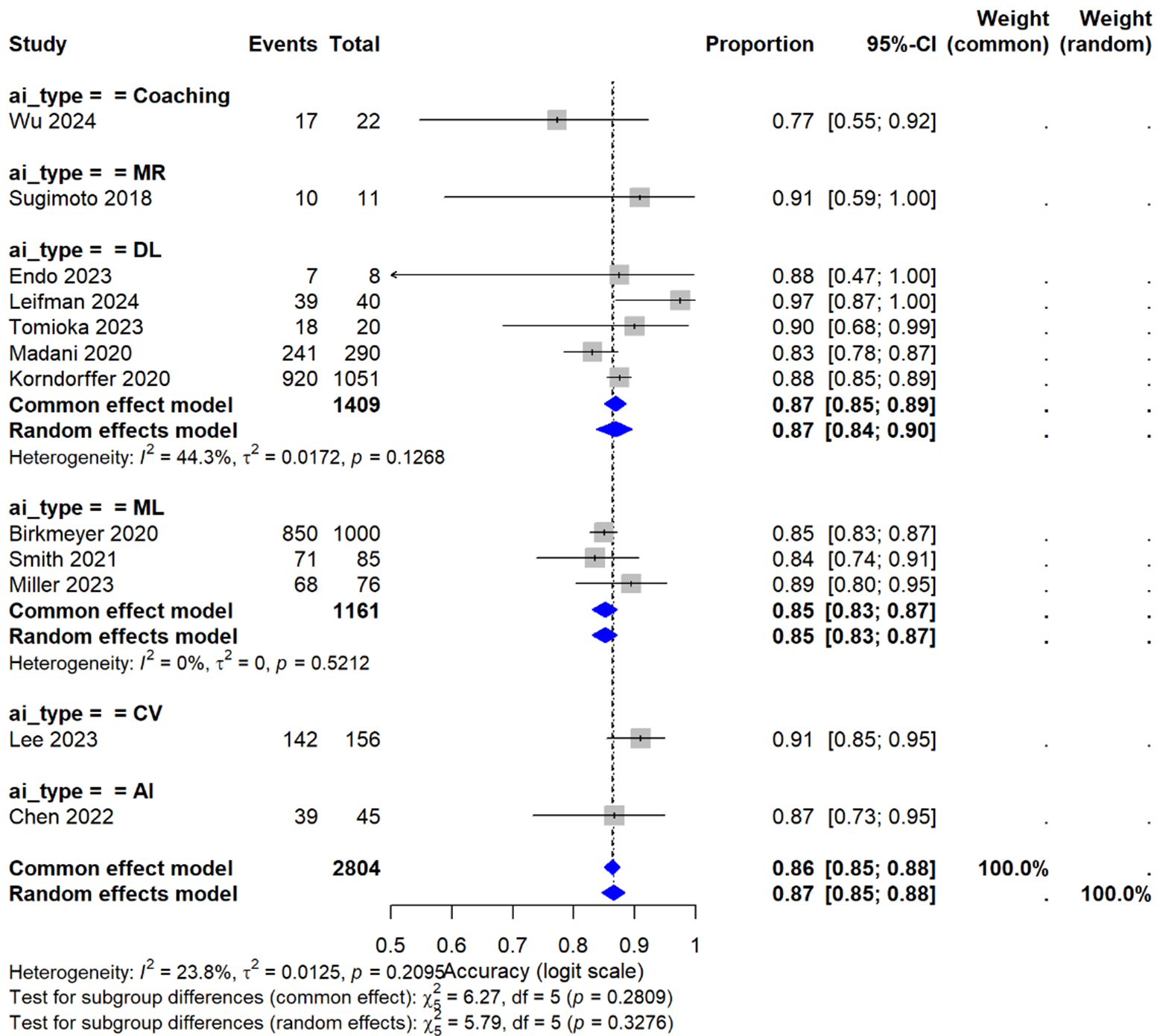fig9
Figure 9. Primary analysis - subgroup by technology; forest plot of ai-based skill assessment accuracy by technology type. Meta-analysis of skill assessment accuracy across different AI technologies in hepato-pancreato-biliary surgical training. Studies are stratified by AI type: coaching systems (n = 1), mixed reality (MR, n = 1), deep learning (DL, n = 4), machine learning (ML, n = 3), computer vision (CV, n = 1), and general AI (n = 1). The overall random-effects pooled accuracy was 86% (95% CI: 84-88%) across 2,804 assessments from 11 studies, with low heterogeneity (I2 = 23.8%, P = 0.21). Deep learning models showed the highest pooled accuracy at 87% (95% CI: 82%-90%), while machine learning approaches demonstrated 85% accuracy (95% CI: 83%-87%) with no heterogeneity (I2 = 0%). Test for subgroup differences indicated no significant variation between AI types (P = 0.36). AI = Artificial intelligence.










